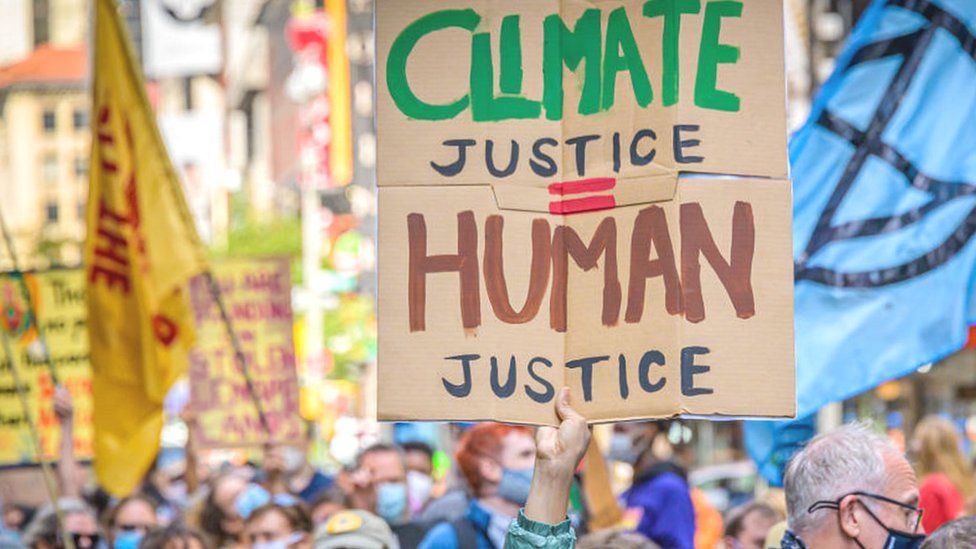NAIROBI – Kenya – In recent weeks, Kenya has witnessed a remarkable surge in digital activism, igniting a powerful movement against the controversial Finance Bill 2024. This grassroots momentum, driven largely through online platforms and social media, has cascaded into passionate street protests across Nairobi and other major cities. Activists, galvanised by concerns over worsening economic hardships and the Bill’s potential exacerbation of these challenges, have bravely taken to the streets to demand justice and accountability.
The interconnectedness of digital activism and its impact on Kenya’s landscape is profound. This movement not only challenges economic policies but also resonates deeply with global calls for climate justice. By leveraging digital platforms to amplify voices, mobilise communities, and advocate for sustainable practices, Kenyan activists are pioneering a path towards a more equitable and resilient future.
Climate change is an existential crisis, disproportionately devastating the world’s most vulnerable populations. In Africa, it’s a cruel multiplier of existing inequalities, triggering severe droughts, floods, and food insecurity. These challenges demand immediate, relentless action on both local and global scales.
Digital activism, which has already proven potent in the anti-finance bill movement, is a formidable weapon in the arsenal for climate justice. By harnessing digital platforms, activists can amplify their voices, mobilise communities, and hold leaders’ feet to the fire over their environmental policies.
Digital platforms are the modern megaphones for activists. Social media campaigns, online documentaries, and virtual forums are not just educational tools, they are calls to arms. They can spark a revolution in public consciousness about the causes and catastrophic effects of climate change, underlining the dire need for action. Online petitions, coordinated social media blitzes, and virtual rallies can unite diverse groups, creating an unstoppable force of solidarity and shared purpose. This collective power is crucial in pressuring policymakers to embrace climate-friendly policies.
Digital activism also acts as a watchdog, exposing government and corporate malfeasance and demanding transparency and accountability. Activists can use social media to shine a harsh light on environmental injustices such as poaching, land grabbing, pollution, or deforestation thus galvanising public support for stricter regulations and enforcement. Crucially, digital platforms amplify the voices of marginalised communities, ensuring their stories and perspectives are front and centre in the climate justice movement.
Kenya is already home to a vibrant environmental movement, with activists advocating for sustainable practices and policies. By integrating digital strategies honed in the anti-finance bill movement, these activists can enhance their impact. Launching online campaigns that highlight the local impacts of climate change can galvanise public support. Sharing personal stories of those affected by climate change can humanise the issue and foster empathy.
Videos, blogs, and social media posts can provide a platform for these narratives, making the abstract concept of climate change more tangible. Creating online hubs for information, resources, and action plans can facilitate collaboration among activists, researchers, and policymakers. These platforms can serve as a repository of best practices and innovative solutions for climate resilience. Digital activism transcends borders, allowing Kenyan activists to connect with global climate justice movements. This solidarity can amplify their demands and attract international support for local initiatives.
While initially catalysed by opposition to the Finance Bill, the spirit of this movement extends far beyond legislative debates. It embodies a fervent clamour for systemic change and justice across various fronts.
As we honour those who have contributed to this movement, we must recognise the profound impact of digital tools in advancing causes like climate justice.
In the fight against climate change, digital activism serves not only as a source of hope but as a powerful call to action. It draws strength from the resilience and determination of Kenyan activists who continue to push for a more equitable and sustainable future. This movement exemplifies how digital platforms can unite voices, amplify concerns, and inspire global solidarity.
Moving forward this movement signifies a broader commitment to transformative change. It underscores the potential of digital activism to shape public discourse, drive policy reform, and champion societal progress. In Kenya and beyond, the legacy of this movement will continue to resonate, urging us all to pursue justice and equity in the face of pressing global challenges.
The writer, Christine Wainaina is a lawyer working at ICJ Kenya. This article was first published on the People Daily.










